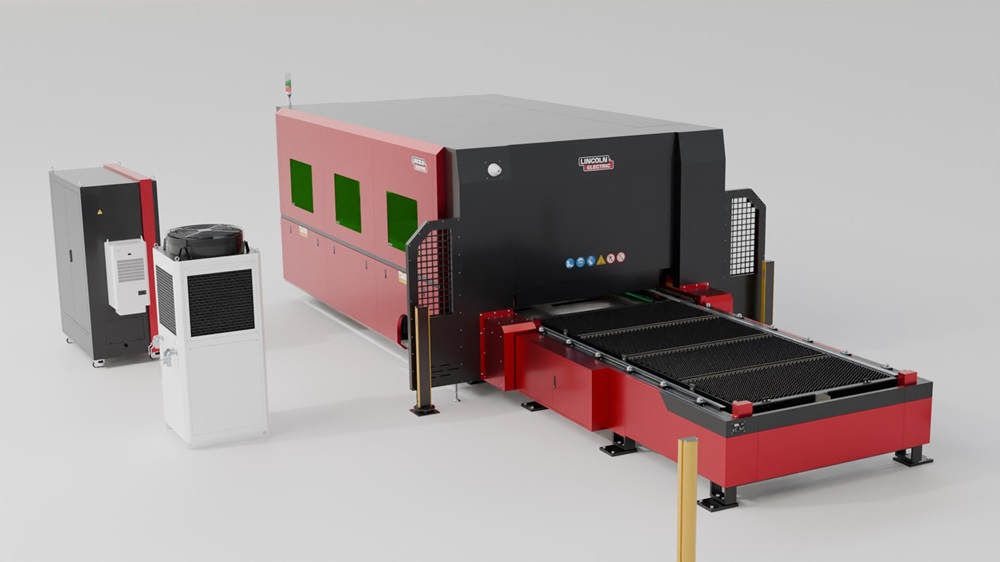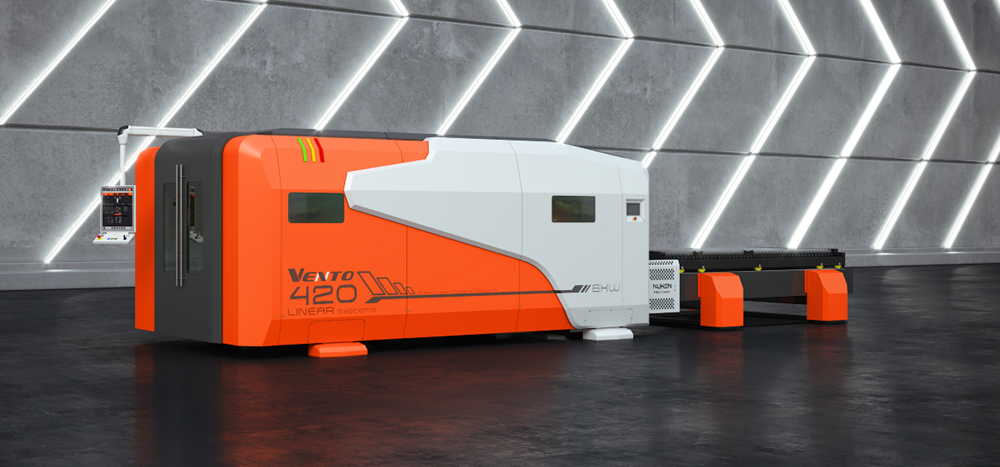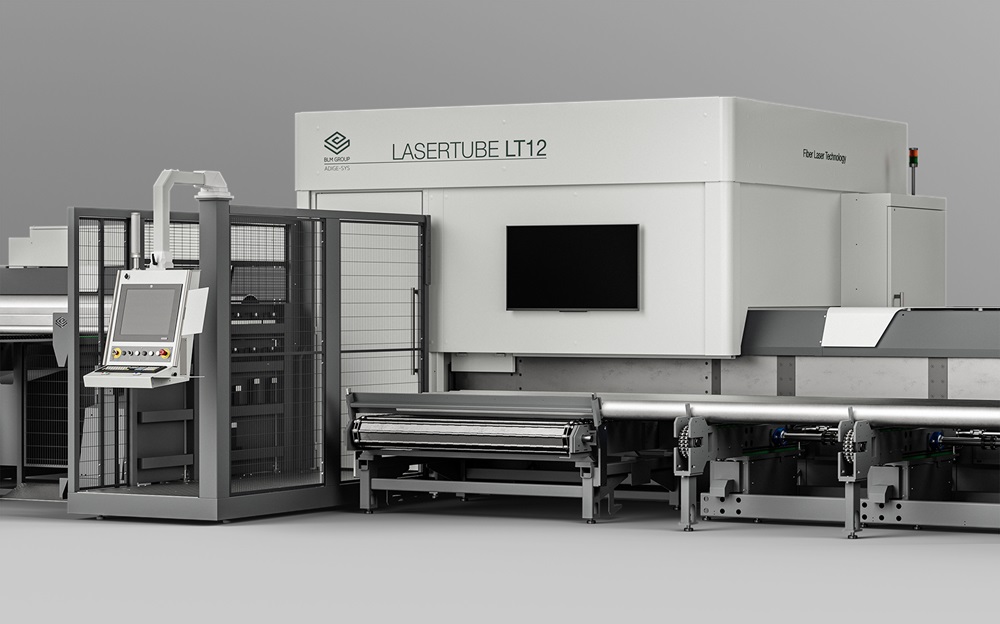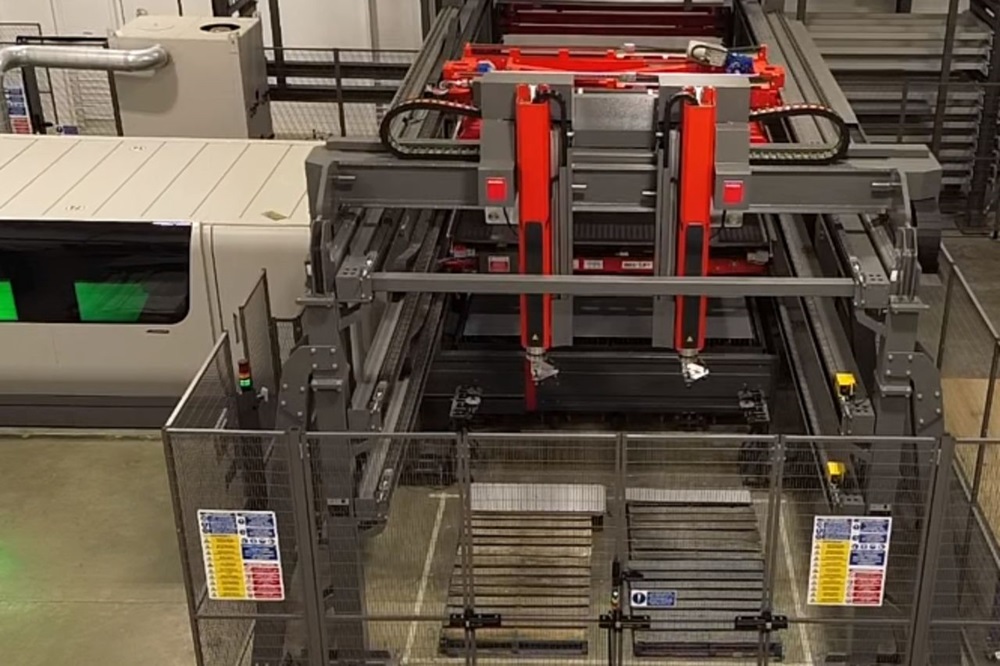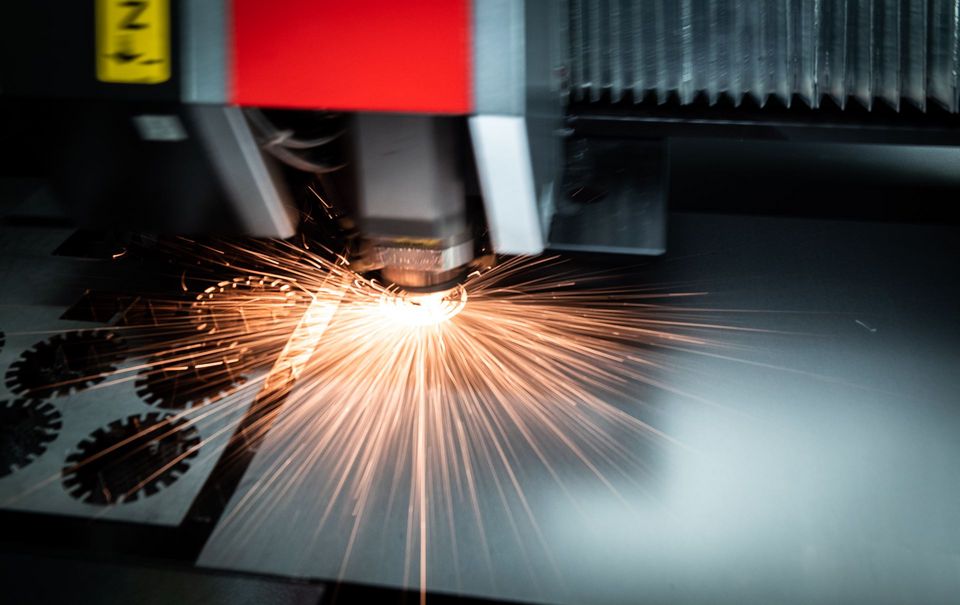The showstopper on the stand of Kerf Developments at the MACH 2024 exhibition in Birmingham, UK, earlier this year was undoubtedly the new Linc-Cut Fiber 1530A fibre laser cutter. According to Kerf, the machine offers dynamic kinematics, rigidity and precision.
Available as a 3, 6 or 12 kW machine initially with a 3 x 1.5 m or 4 x 2 m bed, the Linc-Cut Fiber 1530A synchronises laser cutting and axis movements to deliver accuracy, repeatability and speed. An auto-focus laser head with automatic gas and cutting height calibration delivers the necessary repeatability, while a compact laser source with fibre core diameter of 75 μm supports high cutting quality.
The new arrival also incorporates a CNC system that integrates with two surveillance cameras to control and monitor all machine operations. With drawing software and automated nesting, the control includes a database of parameters for all material types and thicknesses. The machine offers rapid axis movements of 110 m/min and positional accuracy of 0.03 mm.
Alongside the Linc-Cut Fiber 1530A at MACH was the new Kerf Ultra, a machine that provides both oxy-fuel and plasma cutting in a single machine. For existing customers of Kerf models, the new Ultra represents a technological leap forward that marks the arrival of next-generation profile cutting technology. With improved speed, precision, repeatability and cut quality over previous models, the new Ultra achieves elevated parameters by introducing a brand new motion system and new linear slide technology that sits upon an enhanced machine frame design.
For further information www.kerfdevelopments.com






